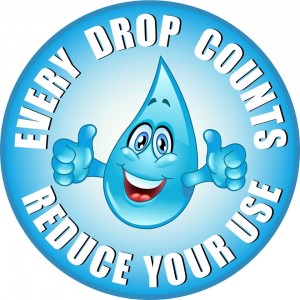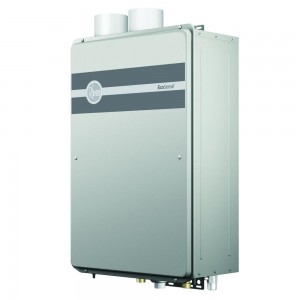The Most Common Plumbing Problems and When to Call a Professional
Almost every homeowner or renter has a few essential tools on hand to cope with minor plumbing emergencies. Many times, a clogged toilet or slow drain may need a little elbow grease and a plunger to work as intended. If you’re handy around the house, you can generally tackle a small repair such as changing out a worn washer or replacing a drain cover. However, bigger plumbing repair jobs need professional plumbers charlotte nc. Trying to repair some common issues such as slow drains or leaking toilets could lead to bigger problems later.
Plumbing Maintenance
One way to prevent costly repairs to your home is a regular maintenance schedule. Because many issues with your pipes sneak up on you, a thorough inspection is the key to catching small problems before they grow. Hidden leaks in sink drains or below water heaters are more than just a nuisance; over time, they can cause structural damage. Water that seeps into sheet rock or plaster contributes to mold growth. Porous tile or wood flooring can discolor or warp when wet.
Many routine maintenance tasks are simple do-it-yourself jobs. An inspection is the foundation of any maintenance schedule. You may use your sinks and tubs daily, but you might not notice minor concerns unless you set aside time for an inspection. Go through your home and take a look at your plumbing. Examine all exposed pipes, including under sinks and behind toilet tanks, for any signs of moisture. On a humid day, some condensation on a cold metal pipe is normal, so note any dampness and check the pipes again when the home is cooler. Check for signs of corrosion on brass or copper fittings; corrosion occurs more rapidly on damp metal, so corroded connections could reveal a slow leak.
Turn on water faucets in sinks, showers and tubs to monitor water pressure. Some variation between different faucet styles and purposes is normal, but all of them should have a steady flow. Note how quickly the water drains after you test the faucet, too; slow drains could mean a clog waiting to happen. While you’re making your rounds, flush toilets to ensure they don’t run or leak at the base, a sign of a faulty wax seal.
Inspections from a certified Charlotte, NC, plumber give you a more in-depth look at your home’s pipes and drains. Your inspector will check the water heater, garbage disposal and every area of your home’s plumbing system. More thorough assessments might include remote video inspection of pipes, lead testing and filter system inspection.
After a thorough inspection, remove and clean aerators on faucets and shower heads. Sediment can build up and slow water flow. If you opt for professional plumbing maintenance, your plumber will take care of this step and others for you. Some of the maintenance duties a licensed plumber can perform include:
treatment to maximize flow rate
cleaning of garbage disposals and water heaters
pressure tests to detect hairline leaks
water pressure assessment and adjustment
Common Plumbing Repair Jobs
Even the most thorough plumbing maintenance inspection won’t prevent the occasional clog or leak, especially in older homes. The clay soil in the Charlotte, North Carolina, area also contributes to septic system problems that can affect toilets and drains. Many of these common issues have equally common solutions.
Dripping
If you’ve ever tried to fall asleep with a dripping faucet in the next room or wrestled with a kitchen sink that didn’t know when to stop, you know how annoying this common problem can be. A dripping faucet also drives your water bill higher. A single faucet can send hundreds of gallons of water per year down your drains a drop at a time.
Water entering your home is under pressure to move it through the pipes. When you turn off the tap, rubber or silicone-based washers form a water-tight seal that prevents more water from pushing its way through the pipes and out of the faucet. Over time, washers can become stiff, torn or dislodged, allowing a tiny trickle of water through and creating that annoying drip. While you can replace washers yourself, the repair job can be more of a challenge than you might expect without specialized tools. If the leak has gone on long enough, the valve seat may become worn or corroded, necessitating a more involved repair that’s best left to a professional plumber.
Not all sinks have washers to hold back the flow of water. Ceramic taps, also called disc or canister taps, use durable ceramic plates that fit together to form a seal. Although they need maintenance less often than rubber washers, the repair job is more complex than a simple washer replacement. If you have a lever-operated sink or tub instead of one with separate knobs, you probably have a ceramic disc or canister tap.
Low Water Pressure
When water that should gush only trickles from the tap, you have low water pressure. This problem might not be related to the pipes in your house but to the municipal water supply. It’s rare, but a break in a main line can temporarily reduce your water pressure. A more common cause of this problem is a build-up of deposits or sediment on faucet aerators.
The water entering your pipes carries dissolved minerals in it that eventually deposit themselves on metal surfaces. If you have a filtration system, these deposits wind up in the filters and get changed; without such a system, these mineral deposits collect on inner surfaces of aerators and shower heads, clogging screens and slowing flow. Most kitchen faucets have easily removed aerators that just unscrew from the tip of the faucet for easy cleaning. Taking off the aerator and soaking it overnight in a vinegar solution will generally dissolve the calcium deposits common in Florida water supplies. Shower heads and bathroom faucets may not be as easy to remove, but you can affix a plastic bag filled with vinegar to the shower overnight to clean it.
If you still notice low water pressure after cleaning aerators and shower heads of sediment and deposits, you might have a more complex issue. A leak or breach in pipes leading into your home is an emergency that could damage your home’s infrastructure or foundation. Sudden and significant reduction in water pressure with no known cause merits a call to a licensed plumber who can pinpoint the reason for the change.
Running Toilet
If you’re tired of jiggling the handle to make your toilet behave after flushing, it might be time to replace its inner workings. Toilets typically run when the flapper valve that lets water pass from the tank to the bowl no longer fits properly, the float is imbalanced or the fill tube comes loose. Toilet repair kits work for most models and require little effort to install.
Occasionally, though, run for more complex reasons. If you’ve replaced the flapper, float apparatus and fill tube, you may have sediment that’s affecting proper flushing and filling. Higher water bills could also indicate a silent leak. To detect a silent leak in your toilet, add a few drops of food coloring to the upper tank and wait 15 to 20 minutes. Look in the bowl for any hint of color; if you see tinted water, your flapper valve isn’t working as it should.
Leaky Pipes
Whether your regular inspection reveals a puddle under a pipe or you get an unpleasant surprise when you reach under your sink, leaks can be a costly nuisance. Leaks usually happen at joints, which is why commercial joint fillers and fitting compounds occupy plenty of shelf space in your local hardware store. These products are a temporary fix, though; a permanent plumbing repair may mean replacing a length of pipe or its fittings.
Although replacing a leaky U-joint under your sink isn’t a complex repair, it is a messy one. You may want to have a professional handle it for you to save the clean-up time. Until the plumber can get to your leak, use a compression clamp and a rubber sheet or leak tape. These temporary repairs keep water from spraying but are easily removed when it’s time for a permanent solution.
Slow or Clogged Drains
When the water that goes into your sink, tub or toilet won’t go out, you probably have a partial or complete clog. In many cases, your trusty plunger can fix the problem. Plungers use air pressure to dislodge a clog, but they can’t remove it entirely. Commercial drain cleaners and clog removers are safe for most drains for occasional use, but these caustic materials can damage some pipe materials if used too frequently. If you’re dealing with clogs on a regular basis, it’s time to call a pro.
Even if you don’t have a complete clog, debris in pipes can slow drainage to a trickle. Shine a flashlight into the drain and see if you can spot the problem. A pair of pliers or tweezers might be able to reach a clump of hair or fallen bottle cap that’s obstructing your pipes. Installing drain screens can prevent detritus from finding its way into drains.
Do-It-Yourself Plumbing Repair 
Before tackling any repair, turn off the water main.
Dress to get wet. Even if you’re careful, plumbing maintenance and repair is a messy task.
The adage to measure twice and cut once applies to pipes, washers and other fittings as well as to carpentry. When possible, take parts to be replaced to the hardware store with you to be sure you’re buying the right item.
Keep a professional plumber’s number handy (704) 394-5252. You may not need the number, but if you snap off a valve and have a geyser in your kitchen, you’ll be glad you kept it near your phone.
When to Call a Professional Plumber
Some issues are too dangerous or complicated to tackle alone. Hire a certified Concord, NC plumber for the following tasks for your safety and the integrity of your home:
installation of new pipes, sinks or tubs
water heater problems
new construction that requires building permits
septic tank leaks
sewer line breaks or leaks
If you have questions, want to schedule a maintenance visit or have a repair emergency, contact Charlotte Plumbing & Repair.
plumbers charlotte nc,plumber charlotte nc,




